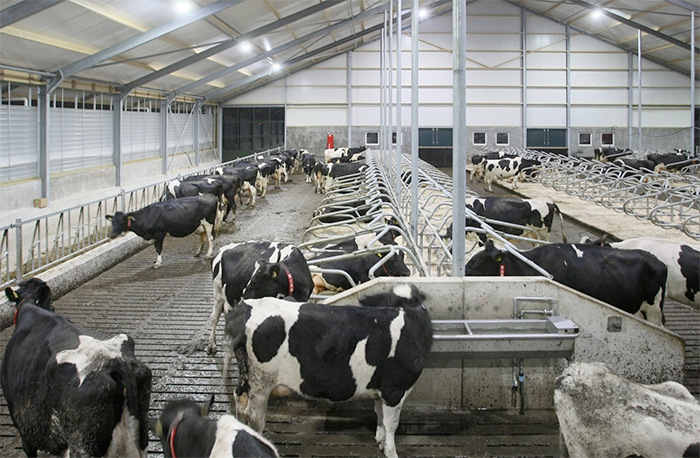
The Dairy Industry Code of Practice for Contractual Relations (VCOP) was agreed and introduced in 2012 to replace conflict and divisiveness between producers and purchases.
"Where the VCOP has been used most effectively there is no doubt that it has achieved exactly what it was put in place to do to the great benefit of producer and processor alike, and it is encouraging that no party has intimated any desire to ‘walk away’ from the VCOP during the review process," said Alex Fergusson, MSP.
"That said, I have been surprised at the apparent lack of interest in the review of the VCOP by individual producers and other representative groups, as it suggests that the potential benefits that can be gained by embracing the Code are not fully appreciated throughout the Dairy Sector."
Some of the submissions received called for the creation of a ‘level playing field’ in order to counteract a perceived competitive advantage held by the Co-ops over the PLC’s. Principle amongst these are:
1) Different notice periods required for termination of contract:
Where the VCOP has been used most successfully, producers and processors have agreed a choice between a 3 month contract, and a 12 month contract which attracts a premium.
2) Notice of Price Change – specifically the impression given that a competitive
advantage can be gained by a Co-op through the introduction of a price change without the required period of notice.
On the basis of the evidence given to me, I am clear that; by ensuring its members can access data which indicates the direction of travel of the monthly milk price, even when that data is for members only; where that process is an agreed part of the formulaic pricing mechanism; and where that process can be changed by the members if they so desire, a co-op is complying with the code as agreed.
3) Notification of Price Increases – specifically the belief that 30 days’ notice must be given for any price decrease or increase. Concerns were raised with me over that the requirement to give 30 days notice of any price change (up or down) triggers the right of the producer to terminate their contract, thus opening the possibility of predatory action by others.
I am clear that the code is being misinterpreted, as the requirement is that 30 days’ notice should be given for price decreases only.
Mr Fergusson said: "Having been appointed as the independent chair of the Dairy Industry Code of Best Practice for Contractual Relations Review, I am pleased to publish my report and recommendations.
"I have spent a considerable amount of time appreciating and understanding the various differing relationships within the sector and the challenges they face. Having done so, I am strongly of the view that the Code already holds the key to addressing many of the concerns that were raised with me.
“It is however vitally important that everyone involved in the sector, be they producer or purchaser, fully understands the Code so that they can use it in the positive and constructive way in which it has been drawn up. I am deeply grateful to all those individuals and organisations who took part in this review, and for their patience and understanding over the length of time it has taken.
"A major weakness of the VCOP is that it has not been more widely embraced or understood, particularly by the medium-sized and smaller purchasers and by some producer representatives."
Commenting on the Voluntary Code of Practice published today by the Rt. Hon. Alex Fergusson MSP, Dr Judith Bryans, Chief Executive of Dairy UK, said: “When the VCOP was established it was agreed it would be reviewed annually to ensure that it worked well for all parties.
"Given the diversity of dairy businesses that Dairy UK represents and the need to have a level playing field for businesses within the industry, we can only accept those recommendations where there is consensus amongst our membership. We welcome Mr Fergusson’s recommendations on the good practice clause, early termination/liquidation of damages and exclusivity.
"However, recommendations where there is not consensus amongst our members remain a problem. For example, on the central issue of notice periods the reality is that the differing levels of notice periods have created a security of supply issue for some of our members and risk creating a division within the industry.
"Long term, disparity around security of supply will not be helpful in attracting investment into the industry. We are continuing dialogue around aspects of the voluntary code with the farming unions going forward.“
NFU dairy board chairman, Rob Harrison said: “The voluntary code review has been taking place to ensure that the code continues to improve fairness of contracts and to create transparency between farmers and processors in the dairy industry. I would like to thank Rt. Hon. Alex Fergusson MSP for his review of the voluntary code and its processes.
“We welcome the outcome of the review, which shows that the code has been effective from the beginning with recommendations supporting many existing points and that it works at its best when embraced fully by processors. We also support further recommendations, including exclusivity in contracts, which is especially relevant during the difficult times farmers are currently facing.
“At the NFU, we have been working hard to ensure that the voluntary code helps to further fairness in dairy contracts and we are committed to continuing this work in the future.”
